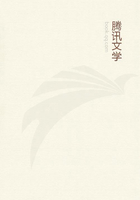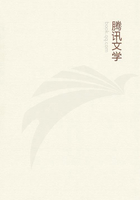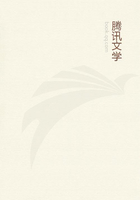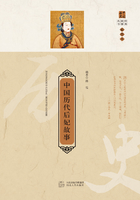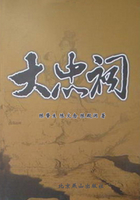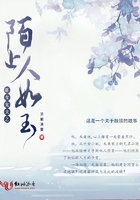VIII. From hence also we may understand, that every civill Law hath a penalty annexed to it, either explicitly, or implicitly; For where the penalty is not defined, neither by any writing, nor by example of any one who hath suffered the punishment of the transgressed Law there the penalty is understood to be arbitrary, namely, to depend on the will of the Legislator, that is to say, of the supreme Commander. For in vain is that Law which may be broken without punishment.
IX. Now because it comes from the civill Lawes, both that every man have his proper Right, and distinguisht from anothers, and also that he is forbidden to invade anothers Rights, it followes, that these Precepts ( Thou shalt not refuse to give the honour defin'd by the Lawes unto thy Parents: Thou shalt not kill the man whom the Lawes forbid thee to kill: Thou shalt avoid all copulation forbidden by the Laws: Thou shalt not take away anothers goods against the Lords will: Thou shalt not frustrate the Laws and Judgements by false testimony) are Civill Lawes. The naturall Lawes command the same things but implicitly. for the law of nature (as hath been said in the 3. Chap. Art. 2.) commands us to keep contracts, and therefore also to performe obedience when we have covenanted obedience, and to abstaine from anothers goods when it is determin'd by the civill Law what belongs to another. But all Subjects (by the 13. Art. of the 6. Chap.) do covenant to obey his commands who hath the supreme power, that is to say the civill Lawes, in the very constitution of government, even before it is possible to break them. For the Law of nature did oblige in the state of nature, where first (because nature hath given all things to all men) nothing did properly belong to another, and therefore it was not possible to invade anothers right; next, where all things were common, and therefore all carnall copulations lawfull; Thirdly, where was the state of Warre, and therefore lawfull to kill; Fourthly, where all things were determined by every mans own judgement, and therefore paternall respects also: Lastly, where there were no publique judgements, and therefore no use of bearing witnesse, either true, or false.
X. Seeing therefore our obligation to observe those Laws, is more ancient then the promulgation of the Laws themselves, as being contained in the very constitution of the City, by the vertue of the naturall Law which forbids breach of Covenant, the Law of nature commands us to keep all the civill Laws; for where we are tyed to obedience, before we know what will be commanded us, there we are universally tyed to obey in all things. Whence it followes, that no civil Law whatsoever, which tends not to a reproach of the Deity (in respect of whom, Cities themselves have no right of their own, and cannot be said to make Lawes) can possibly be against the Law of nature; for though the Law of nature forbid theft, adultery, &c. yet if the civill Law command us to invade any thing, that invasion is not theft, adultery, &c.
For when the Lacedemonians of old permitted their youths by a certaine Law, to take away other mens goods, they commanded that these goods should not bee accounted other mens, but their own who took them; and therefore such surreptions were no thefts. In like manner, copulations of heathen Sexes, according to their Lawes, were lawfull marriages.
XI. Its necessary to the essence of a Law, that the Subjects be acquainted with two things, First, what man or Court hath the supreme power, that is to say, the Right of making Lawes.
Secondly, what the Law it self sayes; for he that neither knew either to whom or what he is tyed to, cannot obey, and by consequence is in such a condition, as if he were not tyed at all. I say not that it is necessary to the essence of a Law, that either one, or the other be perpetually known, but onely that it be once knowne; and if the Subject afterward forget either the Right he hath who made the Law, or the Law it self, that makes him no lesse tyed to obey, since he might have remembred it, had he had a will to obey.
XII. The knowledge of the Legislator depends on the Subject himselfe; for the right of making Lawes could not be conferr'd on any man without his owne consent, and covenant, either exprest, or suppos'd; exprest, when from the beginning the Citizens doe themselves constitute a forme of governing the City, or when by promise they submit themselves to the Dominion of any one; or suppos'd at least, as when they make use of the benefit of the Realme, and Lawes, for their protection and conservation against others. For to whose Dominion we require our fellow Subjects to yeeld obedience for our good, his Dominion we acknowledge to be legitimate by that very request. And therefore ignorance of the power of making Lawes, can never be a sufficient excuse; for every man knowes what he hath done himselfe.
XIII. The knowledge of the lawes depends on the Legislator, who must publish them, for otherwise they are not Lawes; for Law is the command of the Law-maker, and his command is the Declaration of his Will; it is not therefore a Law, except the will of the Law-maker be declar'd, which is done by promulgation.
Now in promulgation two things must be manifest, whereof one is, that he or they who publish a Law, either have a right themselves to make Lawes, or that they doe it by authority deriv'd from him or them who have it; the other is the sense of the Law it selfe.

